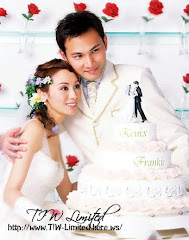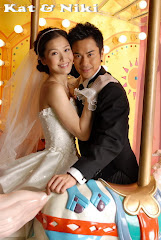.jpg)
The 1986 version of "Heavenly Sword and Dragon Saber" (YiTin) is likely my favourite sword-fighting serial of all time. I enjoyed the characterization of all the major and most of the minor characters (Cheung Sam Fung and his six disciples were particularly memorable both in of themselves and also for the sparkling chemistry/'brotherhood' between them). Simon Yam made for a very dashing Cheung Chiu San, he played the honorable but kind, righteous but not vindictive hero well. And his six Mo Dong brothers, who together were the "Seven Swordsmen of Mo Dong" were one of the highlights of the show for me. The seven were each given three-dimensional characters and they were played out wonderfully--especially the level-headed Mok Lin Chow (second disciple) and Yan Lei Teng (the soft-hearted sixth disciple who would later marry the daughter of the woman he mourned most of his adult life for). Carol Cheng plays Yan So So with finesse. Both she and Simon bring a fair amount of experience to their roles and their level of comfort showed well. Many shows cast inexperienced actors/actresses in minor roles that makes for an awkward introduction or (worse) an unbelievable background to the main plot. This version of Yitin does a remarkable job of assembling an experienced cast to do justice to the novel's many complex and sympathetic characters.
The best developed and best played character of the Mo Dong seven was undoubtedly the dignified and admiration-inspiring Song Yuen Kiu (eldest disciple). The actor took his character flawlessly from being the wise leader of the seven, mindful of chivalric codes (he, of all the leaders of the combined 'righteous' Sects hesitated to order his brothers to attack the then unknown Cheung Mo Kei who was injured and defending the Ming Sect on Kwong Meng Deng) to the broken-hearted father who knelt to his Sifu to apologize for bringing up a traitorous son. I think the scene when he kneels and apologizes to Cheung Sam Fung for his failing to bring up his son well is a great example of minor-character development that this version of Yitin does so well. The other minor character who deserves mention is the Mongolian leader who is Chiu Man's father. He has perhaps 4 or 5 dozen lines in all of the series, but manages to bring out his affection for his daughter, his trust and respect for her, and finally his stricken feelings when she leaves him and (effectively) her people for Mo Kei. Few minor characters manage to make your feel a twinge on their behalf like he does. His last scene, where he turns away from Chiu Man and walks away without turning back is very moving.
We are also introduced to the parent generation part, to Golden-Maned Lion- Tse Sun ... who later becomes sworn brothers with Cheung Chiu San and Mo Kei's beloved godfather. The veteran actor (Tsang Kong) does a wonderful job of Tse Sun - from his youth as Seng Kuan's disciple, to his fury and murderous madness when he discovers that Seng Kuan has raped his wife before killing her and his entire family. The streak of goodness in him that leads to his development of a strong friendship with Chiu San, and finally to his repenting his murdering ways in his many years on the Fire-Ice Island is brought out well in this complex character. All of which makes his turning to Buddhism in the finale one of the deep and feeling resolutions of the series.
Of the minor characters in the 2nd part of the story, the Ming Sect members are the most prominent. Special mention to Chow Din, the happy-go-lucky, cheerfully foul-mouthed sidekick who is always fondly playing coarse, blustering jokster to Yueng Siu's "Straight guy". Most memorable of the Ming Sect followers is Wai Yat Siu- the "Green Vampire Bat". His creative solutions to many situations were impressive of themselves, yet it is his witty lines and obvious loyalty to Mo Kei make him the most likable.
In spite of the strong minor character portrayal, it is truly the lead actors/actresses who carry this show.
Tony Leung's portrayal of Cheung Mo Kei I consider little less than genius. Indeed (as many have noted) he did downplay the part, but I thought that his restrained portrayal of Cheung Mo Kei was not only appropriate to the character's personality (Mo Kei is a simple fellow who only wants to do what is right and literally has his martial arts skills fall into his lap by accident) but -even more spectacular- his downplaying of Mo Kei makes his dramatic scenes more dramatic. Of particular note is his quiet defense of the Ming Sect at Kwong Meng Deng, and his acceptance of his beloved godfather leaving him for the solitude of the monastry at the end after he had fought long and hard to be reunited with Tse Sun. As a romantic hero, his chemistry with Kitty Lai is unparalleled--charming and playful balanced with moving and dramatic. Notable scenes include the short flashback where Mo Kei recalls he and Chiu Man playing "catch" on the island they were temporarily stranded on, and (even more) their understated affection in the temple after Chiu Man collapses from a wound by Chi Yuerk, or something as simple as an impish grin as he surprised Siu Chew from behind a straw hat. These linger on years after the plot details have faded.
This is a dignified, yet moving Mo Kei that Jet Li or Ma Jing Tao (in the only 2 other versions of Yitian I've seen) didn't quite equal. Jet Li's Mo Kei was ambitious and charming and he knew himself to be all that. Ma Jing Tao's Mo Kei was playful if given to melodrama. Tony Leung's Mo Kei was earnest, blithely unconscious of his charms and -most of all- wanted very little of the world but to be left alone. And Mo Kei's very name echoes this sentiment as his parent's and godfather's wish for him not have to be wary and guarded of people. A desire to be apart from the yun yuen (literally "debts and vengences") of the martial arts world is a steady theme in the series: His parent's union could only be on the isolated Ice-Fire Island, his godfather finding peace at last in 'leaving behind' the world. From his childhood to the resolution of the show, Mo Kei is sympathetic to the Buddhist idea that the struggles of the mundane world do not suit a truly peace-embracing soul.
Kitty Lai as Chiu Man is in her element: playful and wilful, yet powerful and sharp and street-smart, Kitty is by turns, the dashing Princess, the wilful woman, the light-hearted friend, the self-sacrificing romantic interest. And Tony played right up to her by being bewildered and beguiled, in turns, by her many facets. Some exquisite scenes here are given to the romantic development between them, with clever, if sincere, lines from Chiu Man in counterpoint to Mo Kei's endearing straightforwardness. Chiu Man is a complex characer who manages to be ruthless and kind, perceptive and yet wilfully unheeding at points--she is given some character development seperate from her relationaship with Mo Kei (which is not always true of romantic interests in swordfighting series!) Her relationship to her father and her conflict of loyalties between Mo Kei and her people/ her father are central to how she grows throughout the series. Sheren Tsang as Chow Chi Yuerk is a tame choice by comparison, since Chi Yuerk does extreme things one would not expect of the soft portrayal of her by Sheren. Still, she suited her role as the torn disciple of the hard and merciless Miet Juet and is entirely believable as the kind-hearted young disciple of the Ngoh Mei Sect that Wuji ditters over. Her transition to the hardened, spurned priestress is not as easy for Sheren, she seemed to struggle with the hard edge that her character was supposed to acquire.
Siu Chew (played by Maggie Siu) is the person who Jin Yong liked best of Mo Kei's 'romantic interest possibles' because Jin Yong himself didn't care much for the hardened leadership personalities that Chiu Man and Chi Yuerk display (see the epilogue to his novel). I'll reserve my judgment on that particular comment, but in terms of how Siu Chew appears in the show, it certainly seems at some point that Siu Chew is the person that Mo Kei would have liked to like if circumstances had permitted. Siu Chew is the mysterious but steadfastly loyal 'maid' from the Ming Sect who attaches herself to Mo Kei as a personal servant, and who turns out to be much more than she appears. She is given a mild but likable portrayal in the series, has some character development when she discovers her long-lost mother and has a few lovely scenes when she decides that for the good of both Mo Kei and their companions and her mother, she must leave him for good. The understated farewell scene between her and Mo Kei was short but leaves a deep impression.
Overall, compared to the other of the Condor series, Jin Yong himself admits that Mo Kei might be the least admirable of the lead characters (again see the epilogue to Jin Yong's novel)... lacking the steadfast goodness of Kwok Cheng and the dashing intelligence and loyalty of Yeung Guo. Mo Kei is indecisive in romantic matters and deferred to Yeung Siu in many of the leadership matters as well. Yet I venture to say that of the 3 of them, Mo Kei moves me most for being most realistic and relatable to. A normal person in an extraodinary world--that of Jin Yong's swordfighting novels!"
PS I do not own this review.

.jpg)
.jpg)
No comments:
Post a Comment